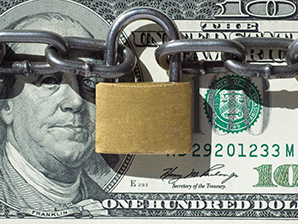Failure by regulators to name foreign companies not in the U.S. may result in failure to comply with accounting standards. We moved some Chinese stocks. There is reason to believe that so many such statements are coming.
The Russian invasion of Ukraine has dominated the market for the past few weeks. Investors will be forgiven for seeing controversial Chinese stocks such as Alibaba Group Holding. But they can't.
The technology sector was particularly stressed, along with China stocks. The group, which abused shares of Alibaba (Tick: Baba) and its associates JD.com (JD) and Tencent (0700.HK) late last year, has focused on US fears of a transfer to the U.S. Does.
The Securities and Exchange Commission has announced that five Chinese companies, including BGNE Yum China (UUMC), Jai Lab (ZLAB), ACM Research (ACMR), and HutchMed (HCM), could be removed from the list. Not fulfilled. American Accounting Standards.
This is the latest installment in the implementation of the Holding Foreign Companies Accountability Act, which became law by the end of 2020 and requires foreign companies to be more transparent in providing financial records. Chinese companies are highly targeted and removing them from the list is the full cost of non-compliant.
More than five stocks cited by the SEC fell on Thursday. Investors in Chinese companies have long considered the law dangerous and the regulator's statement is totally reminiscent of it.
City analyst Alicia App SEC's review is nothing new, emphasizing that the trade deficit risk in New York has been high for many years.
Some market participants believe that other statements by the SEC specifically refer to the names of companies that will be removed from the list. These optics can hurt stock prices in the short term.
The UBS Global Wealth Management team, led by Chief Investment Officer Mark Hefel, said on Friday that further announcements were possible, noting that the SEC's news was unexpected.
"We found that these five companies were not issued by the SEC, but were listed as the first Chinese companies in the US to submit their 2021 annual reports," the group told UBS. "We can expect more companies to be named in the coming weeks."
But there is reason for optimism. UBS is looking at the possibility of US regulators and the Chinese signing an audit disclosure agreement this year. Despite this failure, these companies are likely to opt for a second or dual listing in Hong Kong.
Hefel Group said, "If companies move from the US to HK, we do not expect a reduction in material prices, as stockpiles are still driven primarily by corporate expectations and earnings in China." Therefore less affected. This is progress. "
"The value of a company depends on future profitability and cash flows, its assets and liabilities (balance sheet), and the risk profile of each business and the estimated production time and cash flows," Jolidis said in a statement on Friday. Reduces. "" Stock trading is a trading platform that does not fall into this category (as long as investor payments and security are almost identical). "
Quo Vadis Capital's position is that it negotiates with US regulators, Chinese regulators and the conflicting interests of Chinese companies - many of which list US shareholders as their public owners.
"In our view, there is a common ground and common interest here to support a consensus solution," Zolidis said. "Therefore, we are looking to reach an agreement that will serve regulators in both markets and maintain the current US listing of most Chinese companies."
Alibaba shares fell 5.5% in Hong Kong on Friday. US company shares fell 3.2% after falling 7.9% on Thursday. The Hong Kong Hong Seng Index was under pressure from the technology sector, down 1.6% and the Hong Seng Tech Index was down 4.3%.
Read More:
Courtesy Grizler.com
#grizler #stock #trade
SPONSORED HEADLINES




